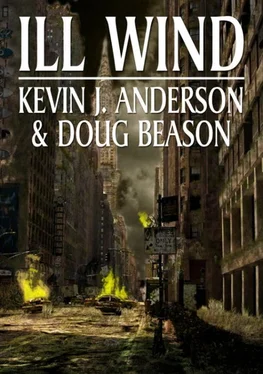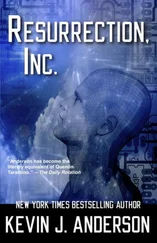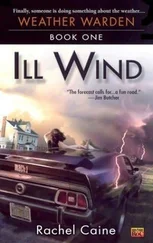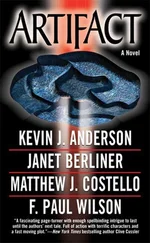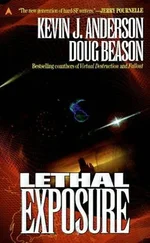Once the announcement had gone out about their windmill-powered Labor Day rock ‘n roll concert, people started trickling into the Altamont settlement. Jackson Harris let them stay, as long as they were willing to feed themselves and do work.
And Todd had been gone only a week.
Harris and Doog and a large group of the commune dwellers worked out at the Altamont Speedway, repairing bleachers, rigging wires, fixing the metal loudspeakers. Another group set about laying cloth-wrapped cable from the windmill substations to the sound system at the racetrack.
Daphne handed Iris a shovel, then took a long rake for herself. “The new folks will think it’s romantic for about two nights to sleep out under the stars, then they’ll want a tent. We’ll need to dig a few more privies, too, but I’m not doing that. We got plenty of hands around here to help out.”
Under the live oaks at the far end of the trailers, huts, and reinforced tents, Daphne began attacking the underbrush. She yanked twigs and tore loose grass to clear a firepit and to make flat foundations for new tents. Iris set to work with her shovel, chopping out heavy roots and removing stones.
“So, do you miss him?” Daphne said after a few moments.
Iris’s instinctive reaction was to say “Who?”—but she knew that would be ridiculous. “A little,” she admitted, trying to keep her voice flat and guarded.
“You gonna wait for him? Do you think he’ll come back?”
Iris shrugged. She gripped her shovel and looked the other direction. She didn’t want to meet Daphne’s eyes.
Daphne said, “If you ever think that cowboy of yours ain’t coming back, just let me know. We’ll set you up with somebody. You notice all the other guys staring at you?”
Iris nodded. “Yes, I’ve noticed—and I don’t think I’ll need your help setting me up. Thanks, anyway.”
Daphne was silent for a moment, then giggled. “Oh, I almost forgot! I got a message for you. Todd radioed from down in Pasadena. He got on the emergency short-wave network and talked to the Lab in Livermore.”
Iris turned quickly, trying to hide her reaction, but she was too late. “What did he say?”
Daphne spoke with agonizing slowness. “Well, he sent a special message to inform you that he made it to LA just fine. They had some trouble with the train, but they’re at the JPL now, making plans to head out with the satellites. He’s gone that far—and personally, I’m surprised.”
“Was there more?” Iris asked. “Did he say anything else?”
Daphne shrugged. “Probably, but it was an unspoken hint. He was talking to that Moira Tibbett, you know. That woman wouldn’t know an emotion if it slapped her in the face!”
Feeling dizzy, her thoughts in turmoil, Iris plunged back into her work with the shovel.
* * *
The musicians making their way to the Altamont commune were a mish-mash of drummers, singers, guitarists. Each one had cobbled together musical instruments from pieces that survived the ravages of the petroplague. Many carried wooden flutes, harmonicas, metal autoharps, and expensive classical guitars with ivory instead of plastic tuning pegs and expensive gut strings instead of nylon.
Several engineers in Livermore had taken the challenge to build functional amplifiers and pickups. Two of them even hoped to build a working electric guitar to really shatter the silence.
After dark, the musicians sat around the evening fire and jammed. The crowds grew bigger and bigger as the days went by, and people rode in from the surrounding towns just to hear the evening practice sessions.
Ironically, before the petroplague, most of these people would never have gone to the same bars or the same concerts. Divided into their own little cultural subgroups, cliques had used fine divisions of music to separate themselves: classic rock, folk music, heavy metal, technopop, easy listening, country. Now though, with everything else falling apart, the music itself—regardless of brand or flavor—brought them together and they listened without the scorn or snobbery they would have shown before.
Satisfied, Iris sat on her lumpy cushion under the stars, sipping strong herb tea from a metal cup. They had stuffed themselves with a delicious stew made in a big pot: vegetables from Tracy, herbs from the gardens planted around the commune, and beef from the local ranchers.
Iris lounged back and looked at the people, thinking how strange a mix they seemed—Jackson Harris’s inner-city refugees, throwback hippies, herself a Stanford microbiologist, and redneck ranchers, cowboys, and migrant workers.
Doog started off the singing himself, accompanied by a quiet unobtrusive harmonica. He had a rich, mellow voice, and he closed his eyes as the words came from his lips. The firelight reflected from the circles of his John Lennon glasses. He seemed to be pulling the music out of his soul as he sang.
It didn’t really matter that Doog’s own taste in music was radically different from what hers had been. Now, as she listened to his voice and thought of her own driving obsession to make the Altamont concert a reality, her need to bring not just music, but Rock ‘n Roll, back to the world.
Then she thought of Todd’s need to help start the world on the long journey back to civilization—even if it meant a fool’s errand of carrying solar-power satellites across the country.
What right did she have to step on his dreams?
Long before the music ended for the night, Iris went off to bed, alone.
Todd Severyn rode high on the buckboard of their commandeered wagon and stared across the landscape of the American southwest.
Beside him, holding the reins of the three horses pulling the wagon, burly Casey Jones sat hypnotized by the desert terrain. He fixed his big dark eyes on the horizon as if willing it to come closer. Casey pushed at the old shirt wrapped like a turban around his bald head to protect him from sunstroke.
He and Todd rode together in the comfortable silence of two men who had already spent too much time together and had used up their conversation. In the wagon bed behind them, Henrietta Soo snoozed in the afternoon heat. Lying against the ten smallsats they had hauled from Pasadena, she sweated under the reflective blankets that tried to keep the heat away.
Todd slouched his cowboy hat over his eyes as the horses plodded along. His arms still ached from days of pumping the railroad handcar across southern California and part of Arizona—but overall he was amazed at how uneventful the journey had been.
Todd kept tattered old maps in a sack under the buckboard, marking his best guess of where they were on their trek. Once they had abandoned the handcar and took to the roads, Casey’s railroad chart hadn’t been much help. By Todd’s reckoning, they had crossed Arizona into New Mexico, then veered south toward Alamogordo and White Sands. Pushing hard, they might reach Spencer Lockwood’s solar-power farm within the next two days.
Early that morning, the last settlement they encountered was a Native American village and old trading post. They had refilled their water containers and traded gossip and news for a delicious breakfast of fresh eggs and tortillas. The desert road stretched arrow-straight ahead of them. The three horses trotted along the easy path with a distance-eating gait.
“People up ahead,” Casey Jones said. His deep voice was gruff and startling in the sleepy afternoon stillness.
Todd cocked his hat back and squinted at two people walking down the road out in the middle of nowhere. Both were tall, a man and a woman; the woman carried a brilliant neon pink backpack.
As the wagon approached, the two hikers stepped off to the side of the road and stood, hands on hips, and waited. The man, tall and broad-shouldered with a mane of straw-colored hair and a devil-may-care grin, stuck out his hand in a classic hitchhiker’s pose. He carried a shotgun over one shoulder and a broad hunting knife at his belt.
Читать дальше
